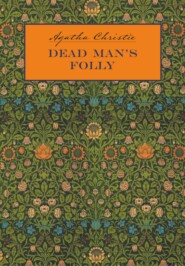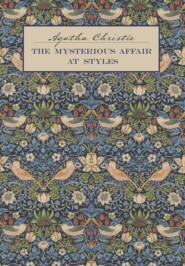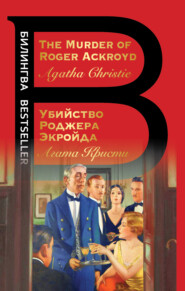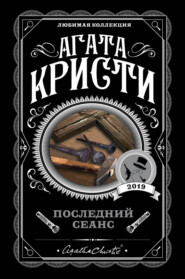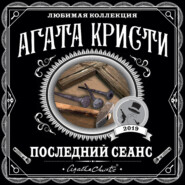По всем вопросам обращайтесь на: info@litportal.ru
(©) 2003-2024.
✖
An Autobiography
Настройки чтения
Размер шрифта
Высота строк
Поля
He had been at Ealing, staying with his stepmother for about a week, and seeing various friends in London who might be able to help him find some kind of job. Finding jobs was not an easy thing to do at that particular date. Either you were a lawyer or a doctor or managed an estate, were in one of the services, or were a barrister, but the great world of business did not provide the livelihood that we expect of it nowadays. There were big financial banking houses, such as Pierpont Morgan’s, and others in which my father had some acquaintances, but everyone was of course a professional–either you belonged to one of the banking houses and had been in it ever since you were a boy, or you did not. My father, like most of his contemporaries, was not trained for anything. He did a great deal of charitable work, and other things that would nowadays provide a paid position, but it was very different then.
His financial position was perplexing to him, and indeed perplexed his executors after his death. It was a question of where the money left by my grandfather had disappeared to. My father had lived well within his supposed income. It was there on paper, but it was never there in fact, and there always seemed to be plausible excuses to explain this and to show that this default would only be temporary–just a matter of special repairs. The estate was no doubt mismanaged by the Trustees and by their successors, but it was too late to remedy that.
He worried, the weather was cold, he caught a bad chill, and double pneumonia developed. My mother was sent for to Ealing, and presently Madge and I followed her there. He was by then very ill. My mother never left him, night or day. We had two hospital nurses in the house. I wandered about, unhappy and frightened, praying earnestly that father might get well again.
One picture remains etched in my mind. It was afternoon. I was standing on the half landing. Suddenly the door of father and mother’s bedroom opened. My mother came out in a kind of rush, her hands held to her head over her eyes. She rushed from there into the adjoining room and shut the door behind her. A hospital nurse came out and spoke to Grannie, who was coming up the stairs. ‘It’s all over,’ she said. I knew then that my father was dead.
They did not take a child to the funeral of course. I wandered about the house in a queer state of turmoil. Something awful had happened, something that I had never envisaged could happen. The blinds of the house were pulled down, the lamps were lit. In the dining-room, in her big chair, Grannie sat writing endless letters, in her own peculiar style. From time to time she shook her head sadly.
Except when she got up to go to the funeral, my mother lay in her room. She did not eat anything for two days, because I heard Hannah commenting on the fact. I remember Hannah with gratitude. Dear old Hannah, with her worn, lined face. She beckoned me to the kitchen and told me she needed someone to help her mix pastry. ‘They were very devoted,’ said Hannah, again and again. ‘It was a good marriage.’
Yes, it was indeed a good marriage. I found among various old things, a letter written by my father to my mother, possibly only three or four days before his death. He wrote of how he longed to return to her at Torquay; nothing satisfactory had been arranged in London, but he felt, he said, he would forget it all when he was back with his dearest Clara again. He went on to say that he had told her often before but he wanted to tell her again how much she meant to him. ‘You have made all the difference in my life,’ he said. ‘No man ever had a wife like you. Every year I have been married to you I love you more. I thank you for your affection and love and sympathy. God bless you, my dearest, we shall soon be together again.’
I found this letter in an embroidered pocket-book. It was the pocket-book my mother had worked for him as a young girl and sent to him in America. He had always kept it, and in it he kept two poems she had written him. My mother added this letter to it.
The house at Ealing had a somewhat ghoulish character these days. It was full of whispering relatives–Granny B, uncles, the wives of uncles, courtesy aunts, Grannie’s old lady cronies–they all half-whispered, sighed, shook their heads. And everyone wore heavy black–I too had black clothes. I must say my mourning clothes were about the only consolation to me at that time. I felt important, worth-while and part of things when I put on my black clothes.
Then there were more whispers of ‘Really, Clara must be made to rouse herself.’ At intervals Grannie would say, ‘Wouldn’t you like to read this letter I’ve had from Mr B. or Mrs C.? Such a beautiful letter of condolence, really I think you would feel most touched by it.’ My mother would say fiercely, ‘I don’t want to see it’.
She opened her own letters but threw them aside almost immediately. Only one she treated differently. ‘Is that from Cassie?’ Grannie asked. ‘Yes, Auntie, it’s from Cassie.’ She folded it up and put it in her bag. ‘She understands,’ she said, and she went out of the room.
Cassie was my American godmother, Mrs Sullivan. I had probably seen her as a small child, but I only remember her when she came to London about a year later. She was a wonderful person: a little woman with white hair and the gayest, sweetest face imaginable, bursting with vitality, with a strange joyousness about her–yet she had had one of the saddest lives possible. Her husband, to whom she was devoted, had died quite young. She had had two lovely boys, and they too had died, paralysed. ‘Some nursemaid,’ said my grandmother, ‘must have let them sit on the damp grass.’ Really, I suppose, it must have been a case of polio–not recognised at that time–which was always called rheumatic fever, the result of damp, and which resulted in crippling paralysis. Anyway, her two children had died. One of her grown-up nephews, who was staying in the same house, also had suffered from paralysis and remained crippled for life. Yet, in spite of her losses, in spite of everything, Aunt Cassie was gay, bright, and full of more human sympathy than anyone I have ever known. She was the one person mother longed to see at that time. ‘She understands, it is no good making consoling phrases at people.’
I remember that I was used as an emissary by the family, that somebody–perhaps Grannie, or perhaps one of my aunts–took me aside and murmured that I must be my mamma’s little comforter, that I must go into the room where my mother was lying and point out to her that father was happy now, that he was in Heaven, that he was at peace. I was willing–it was what I believed myself, what surely everyone believed. I went in, a little timid, with the vague feeling which children have when they are doing what they have been told is right, and what they know is right, but which they feel may, somehow or other, for a reason that they don’t know, be wrong. I went timidly up to mother and touched her. ‘Mummy, father is at peace now. He is happy. You wouldn’t want him back, would you?’
Suddenly my mother reared up in bed, with a violent gesture that startled me into jumping back. ‘Yes, I would,’ she cried in a low voice. ‘Yes, I would. I would do anything in the world to have him back–anything, anything at all. I’d force him to come back, if I could. I want him, I want him back here, now, in this world with me.’
I shrank away, rather frightened. My mother said quickly, ‘It’s all right, darling. It’s all right. It’s just that I am not–not very well at present. Thank you for coming.’ And she kissed me and I went away consoled.
PART III
GROWING UP
I
Life took on a completely different complexion after my father’s death. I stepped out of my child’s world, a world of security and thoughtlessness, to enter the fringes of the world of reality. I think there is no doubt that from the man of the family comes the stability of the home. We all laugh when the phrase comes, ‘Your father knows best,’ but that phrase does represent what was so marked a feature of later Victorian life. Father–the rock upon which the home is set. Father likes meals punctually; Father mustn’t be worried after dinner; Father would like you to play duets with him. You accept it all unquestioningly. Father provides meals; Father sees that the house works to rule; Father provides music lessons.
Father took great pride and pleasure in Madge’s company as she grew up. He enjoyed her wit and her attractiveness; they were excellent companions to each other. He found in her, I think, some of the gaiety and humour my mother probably lacked–but he had a soft spot in his heart for his little girl, the afterthought, little Agatha. We had our favourite rhyme:
Agatha-Pagatha my black hen,
She lays eggs for gentlemen,
She laid six and she laid seven,
And one day she laid eleven!
Father and I were very fond of that particular joke.
But Monty, I think, was really his favourite. His love for his son was more than he would feel for any daughter. Monty was an affectionate boy, and he had great affection for his father. He was, alas, unsatisfactory from the point of view of making a success of life, and father was unceasingly worried about this. In a way, I think, his happiest time, where Monty was concerned, was after the South African War. Monty obtained a commission in a regular regiment, the East Surreys, and went straight from South Africa, with his regiment, to India. He appeared to be doing well and to have settled down in his army life. In spite of father’s financial worries, Monty at least was one problem removed for the time being.
Madge married James Watts about nine months after my father’s death, though a little reluctant to leave mother. Mother herself was urgent that the marriage should take place, and that they should not have to wait longer. She said, and truly I think, that it would be even more difficult for her to part with Madge as time went on and their companionship drew them closer. James’s father was anxious for him to marry young. He was just leaving Oxford, and would go straight into the business, and he said it would be happier for him if he could marry Madge and settle down in their own home. Mr Watts was going to build a house for his son on part of his land, and the young couple could settle down there. So things were arranged.
My father’s American executor, Auguste Montant, came from New York and stayed with us a week. He was a large stout man, genial, very charming, and nobody could have been kinder to my mother. He told her frankly that father’s affairs were in a bad mess, and that he had been extremely ill advised by lawyers and others who had pretended to act for him. A lot of good money had been thrown after bad by trying to improve the New York property by half-hearted measures. It was better, he said, that a good deal of the property should be abandoned altogether to save taxes. The income that was left would be very small. The big estate my grandfather had left had disappeared into thin air. H. B. Claflin & Co., the firm in which my grandfather had been partner, would still provide Grannie’s income, as the widow of a partner, and also a certain income for mother, though not a large one. We three children, under my grandfather’s will, would get, in English currency, £100 a year each. The rest of the vast amount of dollars had been also in property, which had gone down hill and fallen derelict, or had been sold off in the past for far too little.
The question arose now whether my mother could afford to live on at Ashfield. Here, I think, mother’s own judgment was better than anyone else’s. She thought definitely that it would be a bad thing to stay on. The house would need repairs in the future, and it would be difficult to manage on a small income–possible but difficult. It would be better to sell the house and to buy another smaller house somewhere in Devonshire, perhaps near Exeter, which would cost less to run and would leave a certain amount of money from the exchange to add to income. Although my mother had no business training or knowledge, she had really quite a lot of common sense.
Here, however, she came up against her children. Both Madge and I, and my brother, writing from India, protested violently against selling Ashfield, and begged her to keep it. We said it was our home and we couldn’t bear to part with it. My sister’s husband said he could always spare mother a small addition to her income. If Madge and he came down in the summers they could help with the running expenses. Finally, touched I think by my violent love for Ashfield, mother gave in. She said at any rate we would try how we got on.
I now suspect that mother herself had never really cared for Torquay as a place to live. She had a great passion for cathedral towns, and she had always been fond of Exeter. She and my father sometimes went for a holiday touring various cathedral towns–to please her, I think, not my father–and I believe she rather enjoyed the idea of living in a much smaller house near Exeter. However, she was an unselfish person, and fond of the house itself, so Ashfield continued to be our home, and I continued to adore it.
To have kept it on was not a wise thing, I know that now. We could have sold it and bought a much more manageable house. But though my mother recognised that at the time, and must indeed have recognised it very much better later, yet I think she was content to have had it so. Because Ashfield has meant something to me for so many years. It has been there, my background, my shelter, the place where I truly belong. I have never suffered from the absence of roots. Though to hold on to it may have been foolish, it gave me something that I value, a treasure of remembrance. It has also given me a lot of trouble, worry, expense, and difficulties–but surely for everything you love you have to pay some price?
My father died in November, my sister’s marriage took place the following September. It was quiet, with no reception afterwards, owing to the mourning still observed for my father’s death. It was a pretty wedding and took place in old Tor church. With the importance of being first bridesmaid I enjoyed it all immensely. The bridesmaids all wore white, with white wreaths of flowers on their heads.
The wedding took place at eleven in the morning, and we had the wedding breakfast at Ashfield. The happy couple were blest not only with lots of lovely wedding presents but with every variety of torture that could have been thought up by my boy cousin Gerald and myself. All through their honeymoon rice fell out of every garment they removed from suit-cases. Satin shoes were tied on to the carriage in which they drove away, and chalked on the back, after it had first been carefully examined to make sure that nothing of the kind had occurred, were the words ‘Mrs Jimmy Watts is a first-class name’. So off they drove to a honeymoon in Italy.
My mother retired to her bed exhausted and weeping, and Mr and Mrs Watts to their hotel–Mrs Watts no doubt also to weep. Such appears to be the effect of weddings on mothers. The young Wattses, my cousin Gerald and I were left to view each other with the suspicion of strange dogs, and try to decide whether or not we were going to like each other. There was a great deal of natural antagonism at first between Nan Watts and me. Unfortunately, but in the fashion of the day, we had each been given harangues about the other by our respective families. Nan, who was a gay boisterous tomboy, had been told how nicely Agatha always behaved, ‘so quiet and polite’. And while Nan had my decorum and general solemnity praised to her I had been admonished on the subject of Nan, who was said to be ‘never shy, always answered when she was spoken to–never flushed, or muttered, or sat silent’. We both therefore looked at each other with a great deal of ill-will.
A sticky half-hour ensued, and then things livened up. In the end we organised a kind of steeple-chase round the school-room, doing wild leaps from piled-up chairs and landing always on the large and somewhat elderly chesterfield. We were all laughing, shouting, screaming, and having a glorious time. Nan revised her opinion of me–here was somebody anything but quiet, shouting at the top of her voice. I revised my opinion of Nan as being stuck-up, talking too much, and in’ with the grown-ups. We had a splendid time, we all liked each other, and the springs of the sofa were permanently broken. Afterwards there was a snack meal and we went to the theatre, to The Pirates of Penzance. From that time the friendship never looked back and continued intermittently all through out lives. We dropped it, picked it up, and things seemed just the same when we came together again. Nan is one of the friends I miss most now. With her, as with few others, I could talk together of Abney and Ashfield and the old days, the dogs, and the pranks we played, and our young men, and the theatricals we got up and acted in.
After Madge’s departure the second stage of my life began. I was a child still, but the first phase of childhood had ended. The brilliance of joy, despair of sorrow, the momentous importance of every day of one’s life: those things are the hallmark of childhood. With them go security and the complete lack of thought for the morrow. We were no longer the Millers–a family. We were now just two people living together: a middle-aged woman and an untried, naive girl. Things seemed the same, but the atmosphere was different.
My mother had bad heart attacks since my father’s death. They came on her with no warning, and nothing that the doctors gave her helped. I knew for the first time what it was to feel anxiety for other people, whilst at the same time being a child still, so that my anxiety was naturally exaggerated. I used to wake up at night, my heart beating, sure that mother was dead. Twelve or thirteen may be a natural time of anxiety. I knew, I think, that I was being foolish and giving way to exaggerated feelings, but there it was. I would get up, creep along the corridor, kneel down by my mother’s door with my head to the hinge, trying to hear her breathing. Very often I was quickly reassured–a welcome snore rewarded me. Mother had a special style of snoring, beginning daintly and pianissimo and working up to a terrific explosion, after which she would usually turn over and there would be no repetition of the snoring for at least another three quarters of an hour.
If I heard a snore then, delighted, I went back to bed and to sleep; but if there happened to be none, I remained there, crouching in miserable apprehension. It would have been far more sensible if I had opened the door and walked in to reassure myself, but somehow that does not seem to have occurred to me, or possibly mother always locked her door at night.
I did not tell mother about these terrible fits of anxiety, and I don’t think she ever guessed at them. I used also to have fears, when she had gone out into the town, that she might have been run over. It all seems silly now, so unnecessary. It wore off gradually, I think, and probably lasted only for a year or two. Later I slept in father’s dressing-room, off her bedroom, with the door slightly ajar, so that if she did have an attack in the night I could go in, raise her head, and fetch her brandy and sal volatile. Once I felt that I was on the spot, I no longer suffered from the awful pangs of anxiety. I was, I suppose, always over-burdened with imagination. That has served me well in my profession–it must, indeed, be the basis of the novelist’s craft–but it can give you some bad sessions in other respects.
The conditions of our life changed after my father’s death. Social occasions practically ceased. My mother saw a few old friends but nobody else. We were very badly off and had to economise in every way. It was, of course, all we could do to keep up Ashfield. My mother no longer gave luncheon or dinner parties. She had two servants instead of three. She tried to tell Jane that we were now badly off and that she would have to manage with two young, inexpensive maids, but she stressed that Jane, with her magnificent cooking, could command a large salary, and that she ought to have it. Mother would look about and find Jane a place where she would get good wages and also have a kitchenmaid under her. ‘You deserve it,’ said mother.
Jane displayed no emotion; she was eating at the time, as usual. She nodded her head slowly, continued to chew, then said: ‘Very well, Ma’am. Just as you say. You know best.’
The next morning, however, she reappeared. ‘I’d just like a word with you, Ma’am. I’ve been thinking things over and I would prefer to stay here. I quite understand what you said, and I would be prepared to take less wages, but I have been here a very long time. In any case, my brother’s been urging me to come and keep house for him and I have promised I will do so when he retires; that will probably be in four or five year’s time. Until then I would like to stay here.’
‘That is very, very good of you,’ said my mother, emotionally. Jane, who had a horror of emotion, said, ‘It will be convenient,’ and moved majestically from the room.
There was only one drawback to this arrangement. Having cooked in one way for so many years, Jane could not stop cooking in the same strain. If we had a joint it was always an enormous roast. Colossal beefsteak pies, huge tarts, and gargantuan steam puddings would be put on the table. Mother would say, ‘Only enough for two, remember, Jane,’ or ‘Only enough for four,’ but Jane could never understand. Jane’s own scale of hospitality was terribly expensive for the household; every day of the week, seven or eight of her friends were wont to arrive for tea, and eat pastries, buns, scones, rock cakes and jam tarts. In the end, in desperation, seeing the household books mounting up, my mother said gently that perhaps, as things were different now, Jane would have one day a week when she could have her friends. This would save a certain amount of waste, in case a lot was cooked and then people did not turn up. Thenceforward Jane held court on Wednesdays only.
Our own meals was now very different from the normal three-or four-course feasts. Dinners were cut out altogether, and mother and I had a macaroni cheese or a rice pudding or something like that in the evening. I’m afraid this saddened Jane a great deal. Also, little by little, mother managed to take over the ordering, which formerly had been done by Jane. It had been one of my father’s friend’s great delights, when staying in the house, to hear Jane ordering on the telephone in her deep bass Devonshire voice: ‘And I want six lobsters, hen lobsters, and prawns–not less than…’ It became a favourite phrase in our family. ‘Not less than’ was not only used by Jane but also by a later cook of ours, Mrs Potter. What splendid days for the tradesmen those were!
‘But I’ve always ordered twelve fillets of sole, Ma’am,’ Jane would say, looking distressed. The fact that there were not enough mouths to devour twelve fillets of sole, not even counting a couple in the kitchen, never appeared to enter her head.
None of these changes were particularly noticeable to me. Luxury or economy mean little when you are young. If you buy boiled sweets instead of chocolates the difference is not noticeable. Mackerel I had always preferred to sole, and a whiting with its tail in its mouth I thought a most agreeable looking fish.
My personal life was not much altered. I read enormous quantities of books–worked through all the rest of Henty, and was introduced to Stanley Weyman (what glorious historical novels they were. I read The Castle Inn only the other day and thought how good it was.) The Prisoner of Zenda was my opening to romance, as it was for many others. I read it again and again. I fell deeply in love–not with Rudolf Rassendyll, as might have been expected, but with the real king imprisoned in his dungeon and sighing. I yearned to succour him, to rescue him, to assure him that I–Flavia, of course–loved him and not Rudolf Rassendyll. I also read the whole of Jules Verne in French–Le Voyage au Centre de la Terre was my favourite for many months. I loved the contrast between the prudent nephew and the cocksure uncle. Any book I really liked I read over again at monthly intervals; then, after about a year, I would be fickle and choose another favourite.
There were also L. T. Meade’s books for girls, which my mother disliked very much; she said the girls in them were vulgar and only thought of being rich and having smart clothes. Secretly, I rather liked them, but with a guilty feeling of being vulgar in my tastes! Some of the Hentys mother read aloud to me, though she was slightly exasperated by the length of the descriptions. She also read a book called The Last Days of Bruce, of which both she and I approved heartily. By way of lessons, I was put on to a book called Great Events of History, of which I had to read one chapter and answer the questions about it set in a note at the end. This was a very good book. It taught a lot of the main events that happened in Europe and elsewhere, which one could link on to the history of the Kings of England, from Little Arthur onwards. How satisfactory to be firmly told So-and-So was a bad king; it has a kind of Biblical finality. I knew the dates of the Kings of England and the names of all their wives–information that has never been much use to me.






